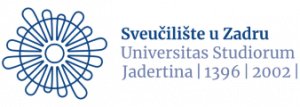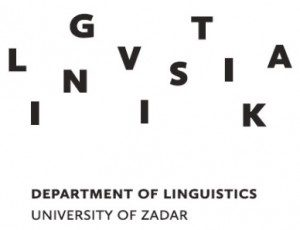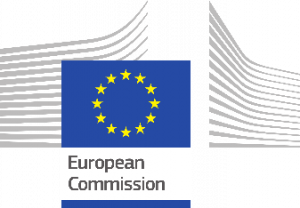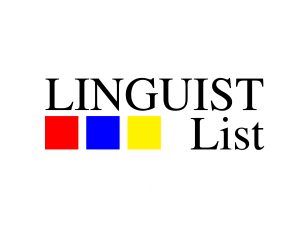First Call for Papers
Psycholinguistics of Slavic Languages (PsychoSlav) is a biennial conference whose aim is to bring together researchers examining Slavic languages from psycholinguistic perspective. The goal of the conference is to promote the discussion between such scholars and possibly lead to some future collaborative crosslinguistic projects. The conference was first organized at the University of Tübingen in 2022 and in 2024, by the Centre for Corpus and Experimental Research on Slavic Languages “Slavicus” at the University of Wrocław.
In 2026, the conference will be organized by the University of Zadar and the UiT The Arctic University of Norway. The conference will take place (in person) in Zadar (Croatia) on May 27-29, 2026.
There will be a thematic session “Cross-Linguistic Influence in Slavic Bilingualism” and an open session.
Thematic session
The topic of the thematic session will be:
“Cross-Linguistic Influence in Slavic Bilingualism”
Cross-linguistic influence (CLI) is a central phenomenon in the study of bilingualism, referring to the ways in which one language affects another in a significant way in a bilingual speaker’s mind. Many speakers of Slavic languages grow up and live in bilingual or multilingual environments, where the interplay between their languages, whether typologically similar or distant, plays a significant role in shaping language acquisition, processing, and attrition.
In bilingual settings with two Slavic languages (e.g., Ukrainian in Poland), structural similarities across grammatical domains (e.g., case marking) can lead to facilitative effects of CLI, supporting acquisition and processing. However, even among closely related Slavic languages, subtle but significant language-specific differences (e.g., variations in verbal aspect), can cause inhibition, showing that typological proximity does not always guarantee facilitation. In contrast, in contexts involving a Slavic and a non-Slavic language (e.g., Croatian in Germany), greater typological differences may result in stronger inhibitory effects of CLI. Recent methodological advancements, such as multilingual group comparisons and real-time processing techniques, offer promising avenues for investigating how multiple grammatical systems coexist and interact within the bilingual mind.
This session aims to address the following questions through the lens of Slavic bilingualism, i.e., bilingualism involving at least one Slavic language:
- What role, facilitative or inhibitory, does CLI play in bilingual language processing?
- How do structural similarity and typological proximity between languages affect the presence, direction, and extent of CLI?
- What insights do real-time processing methods (e.g., electroencephalography (EEG), eye-tracking) offer into the role of CLI?
- What can novel methodological approaches, i.e., multilingual group comparisons, reveal about CLI?
- How do experiential factors (e.g., language exposure and proficiency) and cognitive abilities (e.g., working memory capacities), modulate CLI in real-time processing?
We invite contributions that investigate CLI across various grammatical domains (e.g., grammatical gender, case, aspect, word order, pronouns) and among diverse bilingual populations (including children and adults; simultaneous and sequential heritage bilinguals, L2 and L3 learners, and potential attriters) in Slavic-to-Slavic and/or Slavic-to-non-Slavic contact settings. The goal is to present cutting-edge research and foster discussions of theoretical and methodological advances that deepen our understanding of CLI in the context of Slavic bilingualism.
Open session
For the open session, we invite papers that address the key questions of PsychoSlav, including:
- How does research on Slavic languages impact the general psycholinguistic theories?
- Are the findings on typologically different languages replicable on Slavic?
- How can Slavic languages broaden the scope of psycholinguistic research?
- Do Slavic languages bring new research questions in play due to their specific structure?
- Are there any practical constraints to the psycholinguistic research on Slavic languages?
- If yes, is there any way to overcome them in the near future?
Paper proposals focusing on any topic of language processing on various aspects of Slavic languages, as well as on their use and acquisition, are welcome.
Talks will be 20-minute long plus 10 minutes for discussion. Also, we will have an one-hour long poster session.
We look forward to receiving abstracts addressing one or more of the following strands using new experimental methods:
- phonetics
- phonology
- morphosyntax
- semantics
- pragmatics
- first and second language acquisition
We invite submissions about ongoing work. Abstracts on such projects should present detailed information on the methodological aspects (sample, technique used), planned analysis, and theoretical relevance.
Workshop
The conference will host the workshop:
“When Do Effects Emerge? Resampling Methods for Latency Comparisons in the Visual World Paradigm”
Serge Minor (UiT The Arctic University of Norway)
Confirmed plenary speakers
Natalia Mitrofanova (UiT The Arctic University of Norway, Tromsø)
Kamil Długosz (Adam Mickiewicz University in Poznań)
Kateřina Chládková (Charles University, Prague)
Ana Werkmann Horvat (University of Osijek)
Important dates
Abstract submission deadline: January 31, 2026 February 16, 2026
Notification of acceptance to authors: March 15, 2026
Conference PsychoSlav 2026: May 27–29, 2026
Organizers
Mia Batinić Angster (University of Zadar, Department of Linguistics)
Sara Košutar (UiT The Arctic University of Norway, Department of Language and Culture, Center for Language, Brain and Learning)
Frane Malenica (University of Zadar, Department of English Studies)
Local organizing committee
Mia Batinić Angster
Metka Bezlaj
Frane Malenica
Lucija Milić
Jakov Proroković
Language
The conference will be held in English.
Supported by
University of Zadar
UiT The Arctic University of Norway (European Commission, Marie Skłodowska-Curie Actions (MSCA), Grant No. 101154247)
Registration
Regular fee: 90 €
Registration fee for (PhD) students: 70 €
The fee covers participation and attendance of all sessions, certificate of participation/attendance, conference material, coffee breaks and a conference reception. Registration is required for all conference participants and accompanying persons. Non presenting participants pay the registration fee for (PhD) students.
The registration process TBA
Contact
All questions about the conference should be emailed to:









